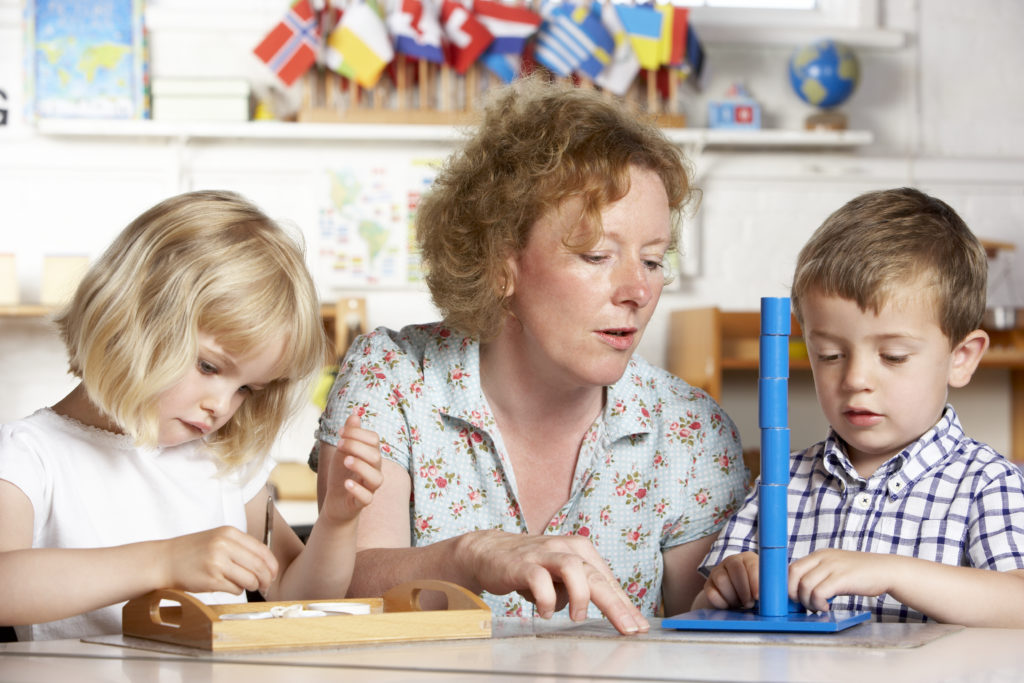Quick Hits
Daily brief research updates from the cognitive sciences

Good news for some and bad news for traditionalists in education.
Some believe that starting education early and using classical and traditional learning activities is the best way to develop children and their brains. Though we do know that early education can be surprisingly important – as I reported here with results seen in the brain up to 40 years later – but we also know that things like simply playing can be beneficial to children.
This is because play in itself uses multiple cognitive resource and often in complex ways and so can be more than beneficial than some schooling approaches. This is in contrast to passive activities such as watching television or engaging in most of social media.
This review out of the University of Cambridge looked at a total of 39 studies including over 3’800 children between three and eight and asked the question of whether guided play could be as effective as traditional approaches to learning. Guided play allows children to engage in playful activities but are guided and prompted by the teacher in certain directions.
What was the result?
The results were positive – very positive. Remember this was a large-scale analysis and they also measured comparative effects by consolidating results from multiple other studies. This was then translated into a relative effect.
In maths ability there was a small comparative positive effect. This shows that guided play was generally more effective than traditional methods and in other areas, shape knowledge, for example, the effect was much larger. There was also evidence that guided play improved the cognitive ability to switch between tasks.
All in that is already a very good result showing that guided play was more effective on average than traditional instruction. But the authors also note multiple other benefits that guided play may include but weren’t measured directly in this study. This includes motivation, persistence, creativity, and confidence. All in that paints a very positive picture for the use of guided play!
So what are you, or rather parents, teachers, and educational authorities, waiting for?
And what about in adults? I suspect I already know the answer to that!

Andy Habermacher
Andy is author of leading brains Review, Neuroleadership, and multiple other books. He has been intensively involved in writing and research into neuroleadership and is considered one of Europe’s leading experts. He is also a well-known public speaker speaking on the brain and human behaviour.
Andy is also a masters athlete (middle distance running) and competes regularly at international competitions (and holds a few national records in his age category).
Reference
Kayleigh Skene, Christine M. O’Farrelly, Elizabeth M. Byrne, Natalie Kirby, Eloise C. Stevens, Paul G. Ramchandani.
Can guidance during play enhance children’s learning and development in educational contexts? A systematic review and meta-analysis.
Child Development, 2022;
DOI: 10.1111/cdev.13730
More Quick Hits
Brain Scans Can Predict Your Political Affiliation
Quick HitsDaily brief research updates from the cognitive sciences rain scanning of political partisans is not new and it has long been reported that brain scans can predict political affiliation. But those studies were scans of political partisans...
Children with Same-Sex Parents Are Socially Well-Adjusted
Quick HitDaily brief research updates from the cognitive sciences his is not the first study to report that children of same-sex parents are well adjusted, there are plenty, but it is one of the first to be representative and hence gives some...
Simple Exposure to New Things Makes Your Brain Ready to Learn
ouldn’t it be great if we could learn things with no effort? Well, actually we often do, and children learn vast quantities of information, and knowledge with little to no effort – think of how well we learn languages which become fiendishly...
So, Can Cranberries Improve Memory?
tend to be hesitant to report on studies of single foods doing amazing things (because many do), but this piece of research still caught my eye. So, what did this group of researchers from the University of East Anglia find? Well, they...
The Real Problem with Social Media: It Induces Dissociative States
Quick HitsDaily brief research updates from the cognitive sciences ocial media seems to hijack our brains – or at least according to popular narratives. Most of us have experienced this where you get stuck in an endless stream of content,...
Adventurous Play Boosts Mental Resilience in Kids
o, a simple cheap way to help your kids improve all life skills and strengthen mental wellbeing. Too good to be true? Well, this piece of research, just out, finds a fascinating correlation with mental health and kids. This correlation was...






